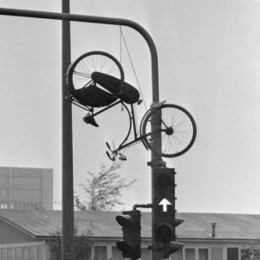By: Benjamin W. Broersma
Open State asked for more open data on mobility in public transportation before [1]. In this post Benjamin tells why bikeshare providers, which use the public space, should also comply to open standards.
The introduction of the forth generation bikeshare system – dockless free floating bikes – came with many promises. But after Amsterdam was overflowing with bikes from multiple bikeshare providers who all quickly wanted to conquer the market, the city banned all bikeshare systems. Rotterdam is also looking closely at the bikeshare systems [2]. When the first bikeshare systems also made it’s entry in Delft, the city I live in, I started looking into the negative effects and how they can be prevented.
One app for all bikeshare providers
The advantage of bikeshare programs is that a bike can be used for more trips and therefore needing fewer parking space per person in the crowded bike racks of inner cities. One problem is that in practice the bikeshare providers do not cooperate, the app of one provider only lists their own bikes, therefore a provider needs a city-wide number of bikes to be interesting for a user. There are hardly any bikeshare providers that share the location data of their own bikes, so there is no app to view all bikesharing bikes. Next to the fact that a user then still has to install one app for each provider to open and pay for the bike. An initiative to solve this was announced at the beginning of this year with the letter of intent ‘Overal een deelfiets met één account’ (Everywhere a bikeshare with one account) [3]. This resulted in the API standard GBFS+ [4], a technical standard that enables the sharing of bike locations and includes prices and a simple link to rent a bike. Now that this standard is in place, but the implementation by the bikeshare providers of this standard does not follow through, we are at this stage that the local authorities should make GBFS+ a requirement.
The missing data
In order to verify the promise of a high number of trips per bike, the bikeshare providers must provide insight into how many trips are made per bike. To currently gain an insight into how many trips are being made, one has to unravel the code of every app and then continuously digitally monitor all locations, which is a laborious task. Sven Boor is doing this research and can now make this kind of visualization of the trips made in Delft:
In Delft the pilot of 100 bikes has now been expanded to around 800 bikes, with an average of 2000 trips on a weekday. Mobike unfortunately did not want to provide these numbers for reasons of competition, which again underlines the need for GBFS+ and reporting of anonymized trip data. These numbers have made me a lot more positive about the – sometimes poorly parked – bikeshare bikes in Delft. I have however also heard that there are bikeshare providers who are doing significantly worse and do not reach these trips per bike by a long way, sometimes even the providers who get government subsidies.
Foreign regulations
In the USA, cities like Washington DC have chosen the smart route by requiring GBFS and sharing of anonymized trip data, and is expanding the program in part because feedback is positive [5, 6], which should be an example for Dutch cities. After some issues Singapore decided to charge the bikeshare bikes, in the Netherlands it would also be possible to charge bikeshare bikes with ‘Precario’ tax. However, by reporting the number of trips per bike, only the non-performing providers could be excluded from the public space, instead of taxing all the bikeshare providers – and thereby also the users.
Pilots & advise
At the end of September, Delft will report the evaluation of the bikeshare pilot, Rotterdam is also carrying out an evaluation and Amsterdam is preparing a new pilot with 6000 bikes. To all these and other municipalities with bikeshare projects: to make bikeshare systems a real success, it is necessary that we don’t end up with just one platform, but multiple providers that compete on price and quality of the bike. In order to prevent the city from becoming overloaded with unused bikeshare bikes, it is necessary that these providers open their platform with GBFS+ and report anonymized trip data in an open format. Make bikeshare a success and make GBFS+ and the reporting of anonymized trip data a requirement in the permit of a bikeshare provider!
[1] https://openstate.eu/en/2018/09/opengeo-and-open-state-ask-for-more-open-data-on-mobility/
[2] https://www.verkeersnet.nl/fiets/25919/rotterdam-kijkt-komende-tijd-extra-kritisch-naar-deelfiets-aanbieders/
[3] https://openbikeshare.github.io/
[4] https://github.com/openbikeshare/gbfsplus
[5] https://blog.mapbox.com/cities-benefit-from-open-dockless-data-bfe610b0568e
[6] https://ddot.dc.gov/sites/default/files/dc/sites/ddot/page_content/attachments/May 2018 Terms and Conditions (4.30.18).pdf
